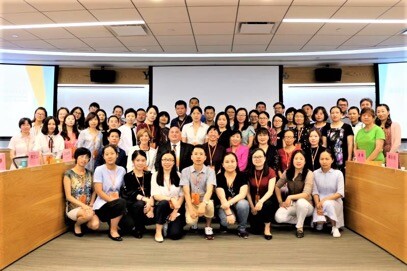Tsai Center Workshops in Beijing Promote New Responses to Domestic Violence

In early June, the Paul Tsai China Center co-hosted an intensive three-day training event to improve the ability of police and domestic violence victim advocates to identify and assist domestic violence survivors at greatest risk of physical harm. Tsai Center Senior Fellow Su Lin Han worked closely with Katherine Verano, Executive Director of Safe Futures (formerly The Women’s Center of SECT), and Chief Jeffery Nixon of the Groton Long Point Police Department to share their expertise in this area with over 50 Chinese anti-domestic violence advocates. The training focused on the design and implementation of the innovative “Lethality Assessment Protocol,” a tool used in Connecticut and elsewhere to screen domestic violence survivors and identify high-risk cases.
The training took place during a crucial period in the development of domestic violence response systems in China. The first nationwide law on domestic violence was passed in December 2015, and since then, government and civil society advocates alike have been working to identify the best strategies for addressing the problem. Workshop participants included representatives from several local Women’s Federations and police departments, as well as lawyers and social workers specialized in victim counseling and support services.

The workshop ended with a full day of in-depth discussions among workshop participants and the U.S. experts about the conceptual and practical implications of adopting the Lethality Assessment Protocol in China. The training culminated the Tsai Center’s multi-year collaboration with Chinese partners to promote the implementation of best practices in combating domestic violence.
Separately, Ms. Verano and Chief Nixon also gave a two-hour talk about the historical development of domestic violence laws and practices in the U.S. at the China Public Security University.


